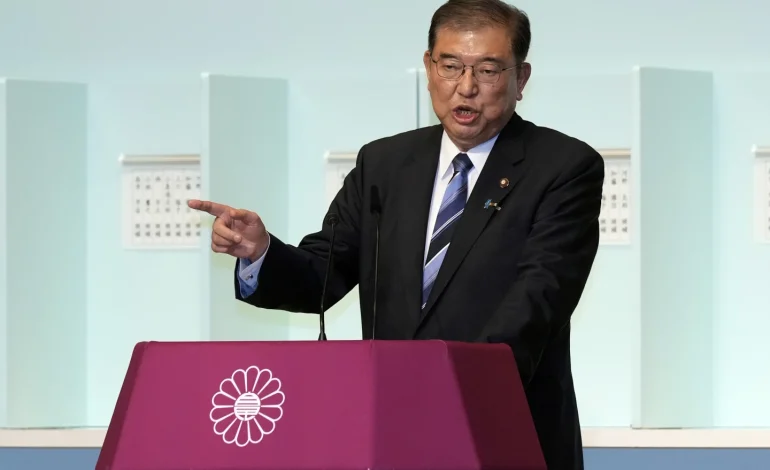Former Defense Minister Shigeru Ishiba has been chosen as the new leader of Japan’s ruling Liberal Democratic Party (LDP), setting him up to become the country’s next prime minister, The Associated Press reports.
This victory, secured in a vote amongst LDP parliamentarians and party members, effectively guarantees Ishiba the top job as the LDP’s coalition controls the parliament.
Ishiba, known for his expertise in defense policy, has advocated for an Asian version of NATO and a more balanced Japan-US security alliance. He is a supporter of Taiwan’s independence and has called for the establishment of a dedicated disaster management agency in a nation known for its frequent natural disasters.
His victory comes after a record nine candidates, including two women, vied for the leadership. The LDP, seeking to regain public trust in the wake of corruption scandals that have plagued the outgoing Prime Minister Fumio Kishida, opted for a fresh leader ahead of a potential general election.
Ishiba beat out Economic Security Minister Sanae Takaichi, a conservative who aspired to become Japan’s first female prime minister. The decision was made by a limited number of LDP members – only 1% of the country’s eligible voters.
Some experts fear this leadership change could usher in an era reminiscent of the early 2000s, marked by political instability and revolving door leadership. Frequent government turnovers can hinder the ability of prime ministers to set long-term policy goals and cultivate international relationships.
On Tuesday, Kishida and his cabinet will resign, paving the way for Ishiba to form a new government later that day.
Meanwhile, the opposition Constitutional Democratic Party of Japan (CDP) struggles to gain traction despite the LDP scandals. However, experts suggest that the party’s newly elected leader, former Prime Minister Yoshihiko Noda, is pushing for a conservative shift, which could trigger broader political realignment.
The incoming Ishiba administration faces a challenging landscape. The country grapples with the economic fallout of the pandemic, an aging population, and growing regional tensions.









